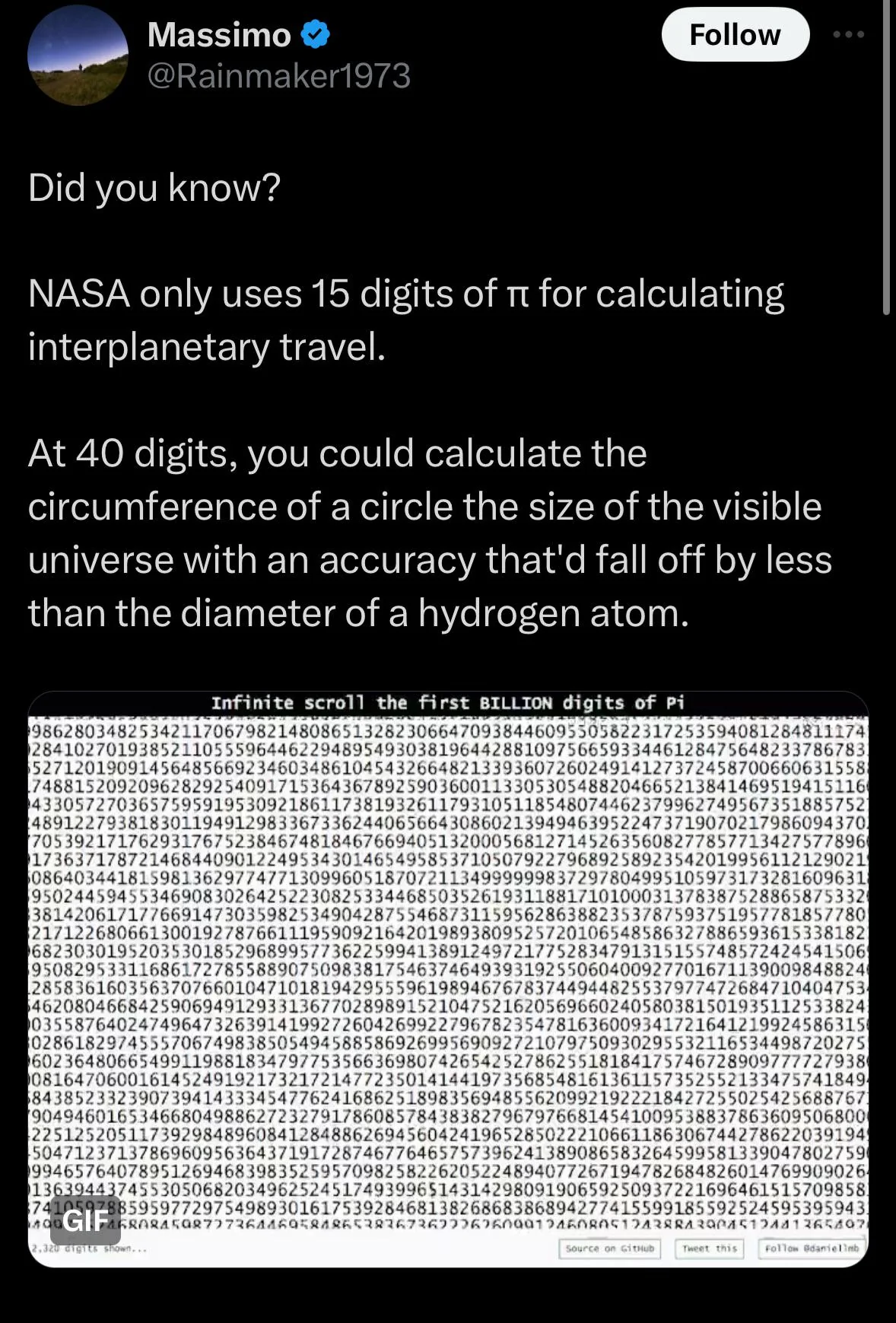this post was submitted on 22 Jan 2024
726 points (99.1% liked)
Science Memes
14387 readers
1941 users here now
Welcome to c/science_memes @ Mander.xyz!
A place for majestic STEMLORD peacocking, as well as memes about the realities of working in a lab.

Rules
- Don't throw mud. Behave like an intellectual and remember the human.
- Keep it rooted (on topic).
- No spam.
- Infographics welcome, get schooled.
This is a science community. We use the Dawkins definition of meme.
Research Committee
Other Mander Communities
Science and Research
Biology and Life Sciences
- !abiogenesis@mander.xyz
- !animal-behavior@mander.xyz
- !anthropology@mander.xyz
- !arachnology@mander.xyz
- !balconygardening@slrpnk.net
- !biodiversity@mander.xyz
- !biology@mander.xyz
- !biophysics@mander.xyz
- !botany@mander.xyz
- !ecology@mander.xyz
- !entomology@mander.xyz
- !fermentation@mander.xyz
- !herpetology@mander.xyz
- !houseplants@mander.xyz
- !medicine@mander.xyz
- !microscopy@mander.xyz
- !mycology@mander.xyz
- !nudibranchs@mander.xyz
- !nutrition@mander.xyz
- !palaeoecology@mander.xyz
- !palaeontology@mander.xyz
- !photosynthesis@mander.xyz
- !plantid@mander.xyz
- !plants@mander.xyz
- !reptiles and amphibians@mander.xyz
Physical Sciences
- !astronomy@mander.xyz
- !chemistry@mander.xyz
- !earthscience@mander.xyz
- !geography@mander.xyz
- !geospatial@mander.xyz
- !nuclear@mander.xyz
- !physics@mander.xyz
- !quantum-computing@mander.xyz
- !spectroscopy@mander.xyz
Humanities and Social Sciences
Practical and Applied Sciences
- !exercise-and sports-science@mander.xyz
- !gardening@mander.xyz
- !self sufficiency@mander.xyz
- !soilscience@slrpnk.net
- !terrariums@mander.xyz
- !timelapse@mander.xyz
Memes
Miscellaneous
founded 2 years ago
MODERATORS
you are viewing a single comment's thread
view the rest of the comments
view the rest of the comments

Okay, maybe exponential is the wrong math term, but my point is, the complexity grows with number of digits. Infinite scrolling is therefore impossible because eventually it will become too slow to keep up with scrolling. You may be right that it may go farther than any human is willing to scroll, but that depends on the human and if they're on a potato phone.
As far as I know, the current fastest algorithm is the Bailey–Borwein–Plouffe formula,, which is
O(n log n)to calculate the nth digit (not even the whole number). Infinite scrolling is only possible if we can calculate the nth digit inO(1)time.Oh shit! Yeah, it looks like as of 2022 that article I linked to needs to be updated. It should say O(n log n), yes.
That said, scrolling ever-farther on a web page will always get slower the further down you go, and eventually fail, because of memory allocation. If you ignore some of the factors that make all truly-infinite pages impossible, and require an O(1) algorithm to generate numbers within the inherently-more-than-O(1) process of rendering the page in the first place, then sure, it’s impossible. My point is, the asymptotic complexity is low enough that you can make a page that does it and it’ll work in practice.